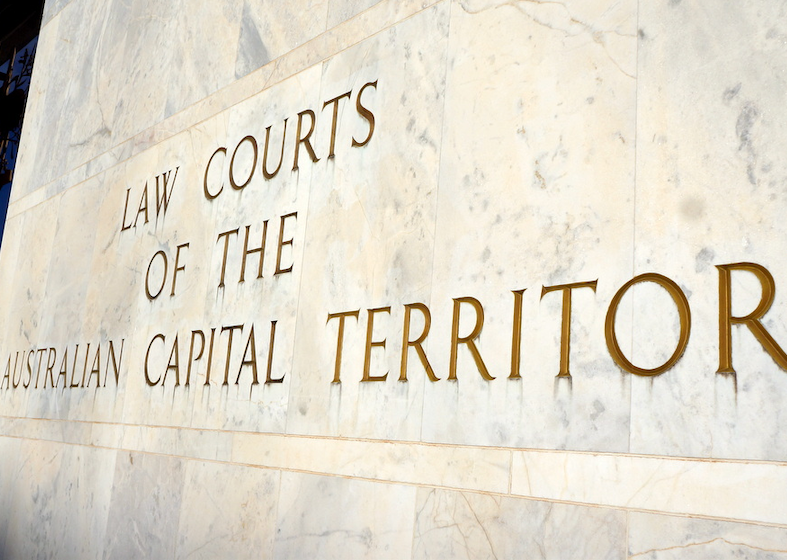
“The solution to tempering the extra-curricular curiosity of jurors was to criminalise widespread addictive behaviour. The crime of a ‘Rattenbury’ was born, treating thinking jurors as criminals.” HUGH SELBY says the move is “farcical, doomed – quite rightly – to ridicule and contempt”.
In the public gallery in a trial court in our Supreme Court there are no empty seats. In each one is a local who has been summonsed for jury service.

A note in a tin is being passed around the court staff: “Write down the number you reckon will use the ‘Rattenbury’ on a scrap of paper with your name. Put the note and $5 in the tin. Person who gets nearest takes the pot. No entry after the judge calls for excuses.”
The trial judge explains the nature of the case, that there will be evidence of injury, and the several stages in the jury selection process.
One of the first instructions is that those who believe they should not serve on a jury are invited to come forward to the judge and quietly give their reason. If accepted they will be excused. If not, they stay in the lottery box to be called to serve.
A middle-aged person comes forward and tells of their carer duties. They are excused. The court staff person sitting below the judge shakes their head: not a ‘Rattenbury’.
Others come forward, giving reasons such as running a small business alone, non-refundable travel booked months before the jury summons arrived, panic reactions to hearing about and/or seeing pictures of violence and its effects. They are excused. More shakes of the head.
Then a group stand up. They look different from those who have gone before. A few of them even seem to be faintly grinning. Some of them have phone wallets. Others are obviously carrying a laptop in their shoulder bag or backpack.
One by one they come forward: “I don’t want to commit a crime but I am addicted to the internet, to news feeds and Googling for information about what I do each day. Please excuse me or I’ll end up with a criminal record.”
The first few of them speak quietly. They are excused. Nods of the head follow. The success emboldens others. They give their excuse confidently and easily heard by their colleagues still sitting in the gallery.
The nods accelerate. At the last trial, the winner guessed that eight people would use this ploy. Today it’s much more, more like 18 “Rattenburries”. Is this a trial court version of TV Hard Quiz Tom’s final round tie-breaker?
The judge’s demeanour does not change. At home they have teenage and just adult children. Part of the school fees expense was and is to ensure that open slather electronic devices are not allowed in the classroom.
But family meals are punctuated by one or more of these offspring reaching for a device to Google the answer, to find out more about some curly question that arises over a forkful of food, and then announce what they have found to everyone around the table.
Sometimes there are opposing views, gleaned from different websites. Then the inevitable follows as the “opponents” or a gleeful sibling turns and says: “You be the judge, that’s your job”.
What is troubling is that the numbers available for the jury are going down fast. If both sides make their maximum number of allowed objections, will there be 14 in the jury box?
This is a complex matter with multiple charges. The trial will likely run some weeks. There need to be 14 jurors to allow for a couple to depart before the end of the trial when 12 jurors must start to work together to reach a verdict on each charge.
How to respond to the problem? It couldn’t be ignored
Talk about the law being an ass. There was a highly publicised trial which ended when it was found that a juror had looked up info out of court hours and – what an idiot – brought the paperwork into the jury room. This was after the trial judge had nicely, but clearly told the jury more than 20 times that they were not, repeat not, to look at any materials outside of what was put before them in that courtroom.
As evidence that warnings don’t and won’t work this was as good as it could get.
The policy issue was how to respond to the problem. It couldn’t be ignored. The problem could have been seen for what it was – an everyday fact of life. A suitable response would be to say: “For those of you who can, keep your eyes and ears away from anything not said or shown to you in this courtroom. For those addicted to social media and search engines we will talk about what you’ve become aware of each morning.”
The expectation would be that as the days went by the need to go elsewhere would be easier to control and the morning discussions shorter. That’s analogous to working in a chocolate factory and being told: “Eat as much as you like”. Craving gives way to abstinence.
But no, the solution was to criminalise widespread addictive behaviour. The crime of a “Rattenbury” was born, treating thinking jurors as criminals. Farcical, doomed – quite rightly – to ridicule and contempt.
The judge’s associate took home the money and the tin.
Who can be trusted?
In a world of spin and confusion, there’s never been a more important time to support independent journalism in Canberra.
If you trust our work online and want to enforce the power of independent voices, I invite you to make a small contribution.
Every dollar of support is invested back into our journalism to help keep citynews.com.au strong and free.
Thank you,
Ian Meikle, editor





Leave a Reply